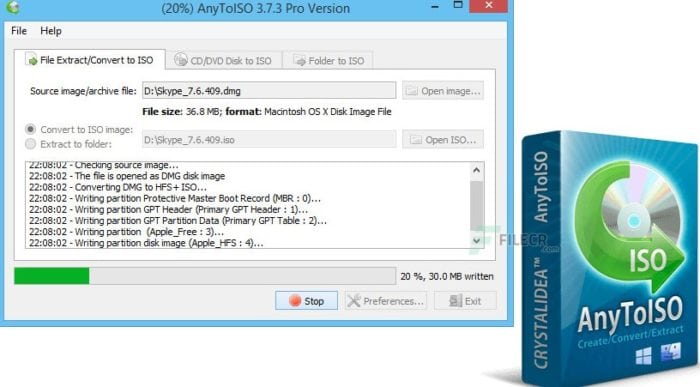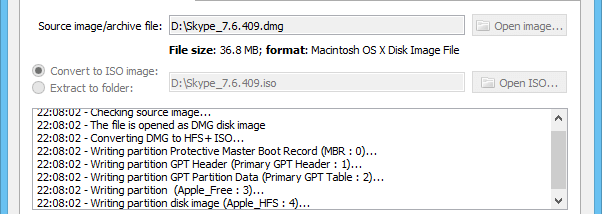

- #ANYTOISO PATH FILE TORRENT UPDATE#
- #ANYTOISO PATH FILE TORRENT FULL#
- #ANYTOISO PATH FILE TORRENT SOFTWARE#
- #ANYTOISO PATH FILE TORRENT DOWNLOAD#
- #ANYTOISO PATH FILE TORRENT WINDOWS#
That means that merging all the components together does not usually yield a proper SPI/BIOS/UEFI image.
#ANYTOISO PATH FILE TORRENT UPDATE#
AMI's BIOS Guard Firmware Update Tool (AFUBGT) updates components based on the user/OEM provided Parameters and Options. Note that the AMI PFAT structure does not have an explicit component order. The output comprises only final firmware components which are directly usable by end users. It supports all AMI PFAT revisions and formats, including those with nested AMI PFAT structures. PFAT, Platform Firmware Armoring Technology) images, extracts their SPI/BIOS/UEFI firmware components and decompiles the Intel BIOS Guard Scripts. Pyinstaller -noupx -onefile AMI_UCP_Extract.py To run the python script, you need to have the following 3rd party tools placed at the same directory: -c or -checksum : verify AMI UCP Checksums (slow).-p or -path : parse files within given folder.
#ANYTOISO PATH FILE TORRENT FULL#
You can either Drag & Drop or manually enter the full path of a folder containing AMI UCP BIOS images. An optional parameter is provided though, for verifying all checksums during extraction. Note that AMI UCP BIOS images are protected by various checksums but, due to algorithmic performance reasons, AMI UCP BIOS Extractor does not check them by default. The output comprises only final firmware components and utilities which are directly usable by end users. It supports all AMI UCP revisions and formats, including those with nested AMI UCP or Insyde SFX structures.

Parses AMI UCP (Utility Configuration Program) BIOS images, extracts their SPI/BIOS/UEFI firmware components and shows all relevant info. You can switch to a better Anti-Virus software, report the false positive to their support, add the executable to the exclusions, build/freeze/compile yourself or use the Python script directly. Any such detections are false positives, usually of PyInstaller.
#ANYTOISO PATH FILE TORRENT SOFTWARE#
Some Anti-Virus software may claim that the built/frozen/compiled executable contains viruses. Pyinstaller -noupx -onefile Dell_PFS_Extract.pyĪt dist folder you should find the final utility executable Anti-Virus False Positives Copy BIOS Guard Script Tool dependency to build directory:.Make sure Python 3.7.0 or newer is installed:.PyInstaller can build/freeze/compile the utility at all three supported platforms, it is simple to run and gets updated often. To decompile the Intel BIOS Guard Scripts via the Python script, you need to additionally have the following 3rd party Python utility at the same directory:
#ANYTOISO PATH FILE TORRENT WINDOWS#
Windows users who plan to use the already built/frozen/compiled binary must make sure that they have the latest Windows Updates installed which include all required "Universal C Runtime (CRT)" libraries. Should work at all Windows, Linux or macOS operating systems which have Python 3.7 support. Note that you need to manually apply any prerequisites. To extract the already built/frozen/compiled archive, you need to use programs which support RAR5 compression.
#ANYTOISO PATH FILE TORRENT DOWNLOAD#
Instead, download the latest version from the Releases tab. Thus, you don't need to manually build/freeze/compile it under Windows.


Various BIOS Utilities for Modding/Research


 0 kommentar(er)
0 kommentar(er)
